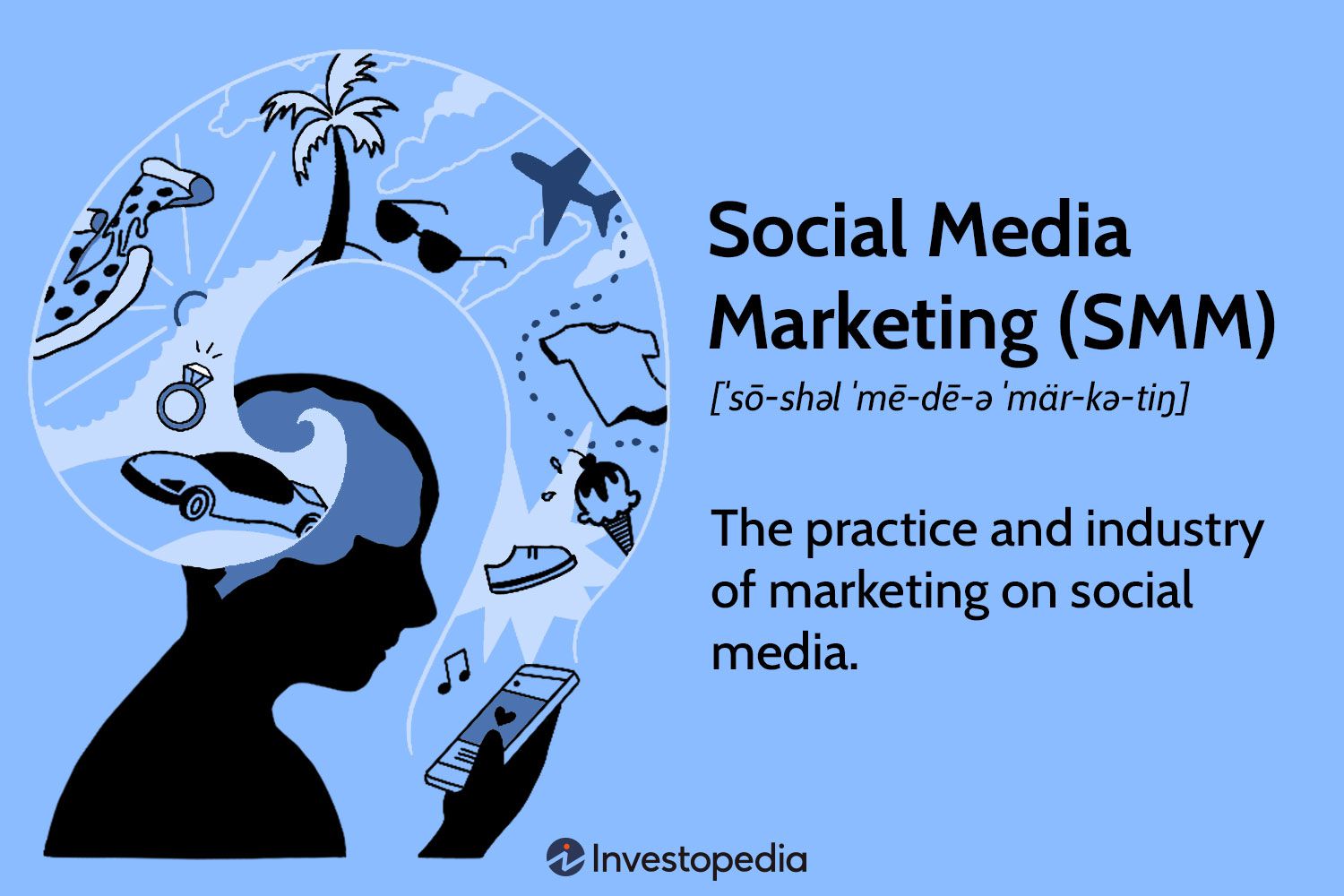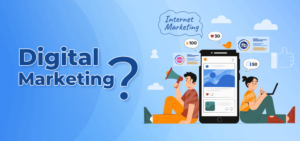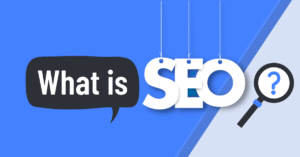**Social Media Marketing (SMM)** refers to the use of social media platforms to promote products, services, brands, or content to a target audience. It involves creating and sharing tailored content on various platforms like Facebook, Instagram, Twitter, LinkedIn, and TikTok to achieve marketing and branding goals.
### Key Aspects of Social Media Marketing:
1. **Content Creation:**
– Developing engaging posts, images, videos, stories, and live sessions that resonate with your audience.
– Content can be informative, entertaining, promotional, or educational, depending on the brand’s goals and the audience’s preferences.
2. **Platform-Specific Strategies:**
– Different social media platforms have unique user bases and features, so marketers create tailored strategies for each:
– **Instagram:** Visual content, stories, reels, influencer partnerships.
– **Facebook:** Community building, detailed posts, ads, events, groups.
– **Twitter:** Short, real-time updates, trending topics, hashtags.
– **LinkedIn:** Professional networking, thought leadership, B2B marketing.
– **TikTok:** Short, engaging, creative video content.
3. **Audience Engagement:**
– Interacting with followers through comments, likes, direct messages, and shares to build relationships and increase brand loyalty.
– Polls, Q&A sessions, and live videos are also used to engage the audience actively.
4. **Hashtag Strategy:**
– Using relevant hashtags to increase the visibility of posts, making content discoverable to a wider audience beyond the followers.
5. **Paid Social Media Advertising:**
– Running targeted ads on social media platforms to reach specific audiences based on demographics, interests, and behavior.
– Ads can include promoted posts, sponsored stories, video ads, carousel ads, etc.
6. **Influencer Marketing:**
– Collaborating with social media influencers—individuals with large followings—to promote products or services to their audience.
– Influencers help build trust and reach a larger or niche audience.
7. **User-Generated Content (UGC):**
– Encouraging users to create and share content related to the brand, such as reviews, photos, or testimonials, to enhance brand credibility and engagement.
8. **Analytics and Performance Tracking:**
– Using built-in analytics tools (e.g., Facebook Insights, Instagram Analytics) to track post performance, engagement rates, and audience growth.
– Adjusting strategies based on performance data, audience behavior, and campaign results.
### Benefits of Social Media Marketing:
1. **Increased Brand Awareness:**
– Social media provides the opportunity to reach a broad audience and introduce them to your brand.
2. **Targeted Audience Reach:**
– Paid and organic content can be tailored to reach specific demographics, ensuring your message reaches the right people.
3. **Cost-Effective:**
– Most social media platforms are free to use, and paid advertising can be cost-effective with precise targeting.
4. **Real-Time Engagement:**
– Social media allows direct and immediate interaction with users, fostering relationships and addressing concerns instantly.
5. **Brand Loyalty and Community Building:**
– Consistent interaction and high-quality content help build a loyal following and community around your brand.
6. **Increased Website Traffic:**
– Posts, ads, and stories often include links that drive traffic directly to websites or product pages.
7. **Lead Generation:**
– Social media can generate leads through ads, forms, or call-to-action buttons embedded in posts and ads.
8. **Boost in Sales:**
– Social media, especially platforms with integrated shopping features like Instagram and Facebook, can directly drive sales by showcasing products and offering easy purchase options.
### Key Social Media Platforms:
1. **Facebook:** Best for community building, long-form content, events, and detailed audience targeting through ads.
2. **Instagram:** Great for visual content, influencer partnerships, and brand storytelling through photos, videos, reels, and stories.
3. **Twitter:** Effective for real-time updates, customer service, and trending topic engagement.
4. **LinkedIn:** Ideal for B2B marketing, professional networking, and thought leadership.
5. **TikTok:** Best for short, creative video content aimed at a younger, more engaged audience.
### Example Strategies:
1. **Storytelling:** Sharing behind-the-scenes content or personal stories to humanize the brand.
2. **Giveaways and Contests:** Running contests to encourage participation and increase engagement.
3. **Social Proof:** Sharing testimonials, reviews, or user-generated content to build credibility.
4. **Live Sessions:** Hosting live Q&A sessions or product launches to interact with the audience in real-time.
### Conclusion:
Social media marketing is a powerful way to connect with your audience, build your brand, increase visibility, and drive conversions. By creating compelling content, engaging with followers, and utilizing paid ads, businesses can harness the potential of social media platforms to grow and succeed.



